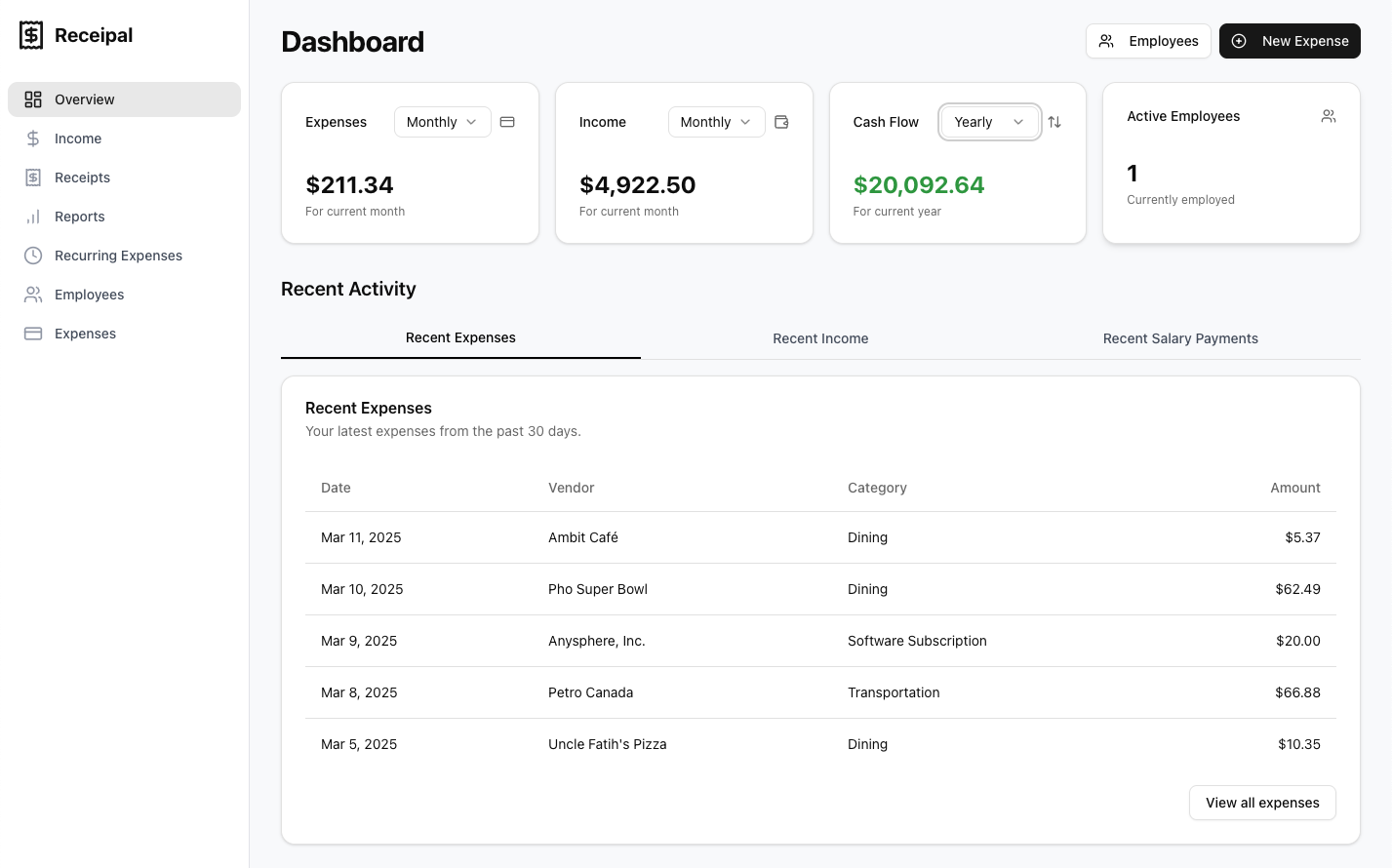The State of Expense Management in 2025: AI and Beyond

According to recent findings by FinTech Global, artificial intelligence now processes 78% of all business expenses worldwide, marking a transformative shift in how organizations manage their financial operations. The evolution of expense management from manual paper-based systems to today's AI-powered solutions represents one of the most significant technological leaps in corporate finance history.
In this comprehensive analysis, we'll explore how AI has revolutionized expense management in 2025 and what this means for businesses across all sectors. From real-time processing to predictive analytics, we'll examine the current state of the industry and provide actionable insights for organizations looking to stay ahead of the curve.
The Current State of Expense Management
The global expense management market has reached $3.9 trillion in 2025, with AI-powered solutions accounting for 85% of new implementations. This explosive growth reflects several key developments:
Market Evolution
- Cloud Dominance: Cloud-based solutions dominate with 95% market share
- Mobile-First: Mobile platforms process 70% of all expenses
- Real-Time Processing: Industry standard for modern solutions
- Integration Focus: Capabilities drive adoption decisions
Key Technological Shifts
1. Automated Receipt Processing
- Sub-second recognition accuracy at 99.9%
- Multi-currency support across 180+ currencies
- Real-time fraud detection and prevention
2. Predictive Analytics
- Spending pattern analysis
- Budget forecasting with 94% accuracy
- Anomaly detection and prevention
3. Compliance Automation
- Real-time policy enforcement
- Automatic regulatory updates
- Cross-border compliance management
AI Technologies Transforming the Industry
Machine Learning Applications
Modern expense management systems leverage sophisticated machine learning algorithms for:
1. Receipt Recognition
- Instant categorization
- Line-item detail extraction
- Vendor pattern recognition
2. Pattern Detection
- Spending behavior analysis
- Policy compliance monitoring
- Fraud prevention algorithms
3. Anomaly Identification
- Unusual spending patterns
- Duplicate submission detection
- Policy violation alerts
Natural Language Processing Advances
NLP technology has revolutionized how users interact with expense systems:
1. Voice-Based Logging
- Multi-language support
- Context-aware processing
- Conversational interfaces
2. Intelligent Assistants
- 24/7 support availability
- Contextual help and guidance
- Policy clarification and updates
Computer Vision Innovations
Advanced computer vision capabilities enable:
1. Real-Time Processing
- Instant receipt capture
- Automatic field population
- Quality enhancement algorithms
2. Document Analysis
- Multi-format support
- Historical document processing
- Digital archive management
Implementation Challenges and Solutions
Integration Considerations
- Legacy system compatibility
- API standardization
- Data migration protocols
Security Requirements
- End-to-end encryption
- Biometric authentication
- Blockchain verification
User Adoption
- Intuitive interfaces
- Mobile-first design
- Personalized training programs
Future Outlook
Emerging Technologies
1. Quantum Computing Applications
- Enhanced processing capabilities
- Advanced encryption methods
- Complex pattern recognition
2. Augmented Reality Integration
- Receipt scanning overlays
- Interactive reporting
- Visual analytics
Market Predictions
- 25% annual growth through 2027
- Increased focus on sustainability
- Enhanced mobile capabilities
Recommendations for Businesses
Implementation Strategy
1. Assessment
- Current system evaluation
- Needs analysis
- ROI calculation
2. Planning
- Vendor selection
- Integration roadmap
- Training schedule
3. Execution
- Phased rollout
- User feedback loops
- Performance monitoring
Best Practices
- Start with pilot programs
- Focus on user training
- Monitor adoption metrics
- Regular performance reviews
Conclusion
The state of expense management in 2025 reflects a mature industry transformed by AI and machine learning. Organizations that embrace these technologies position themselves for enhanced efficiency, better compliance, and significant cost savings. The future promises even more innovations, with quantum computing and AR set to further revolutionize how we manage business expenses.
Ready to transform your expense management process? Schedule a demo to see how our AI-powered solution can streamline your operations.
Download our comprehensive guide: "Implementing AI in Expense Management - 2025 Edition"
Frequently Asked Questions
How has AI transformed expense management?
AI has revolutionized expense management through automated receipt processing, predictive analytics, and real-time fraud detection, processing 78% of all business expenses worldwide.
What are the key benefits of AI-powered expense management?
Benefits include 99.9% accuracy in receipt recognition, 94% accuracy in budget forecasting, real-time fraud detection, and automated compliance management.
How can businesses prepare for the future of expense management?
Businesses should focus on implementing AI-powered solutions, ensuring mobile-first capabilities, and preparing for emerging technologies like quantum computing and AR integration.
What should organizations consider when implementing new expense management systems?
Key considerations include integration capabilities, security requirements, user adoption strategies, and the ability to scale with emerging technologies.
How is blockchain being used in expense management?
Blockchain technology is being used for verification, secure transaction recording, and enhanced transparency in expense management processes.